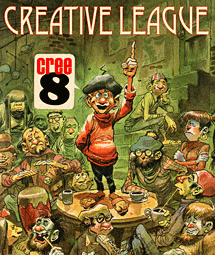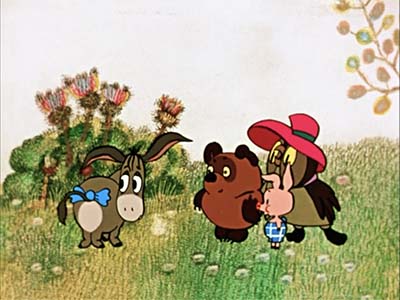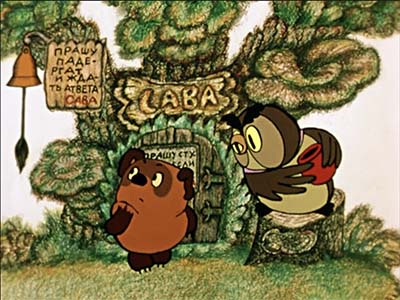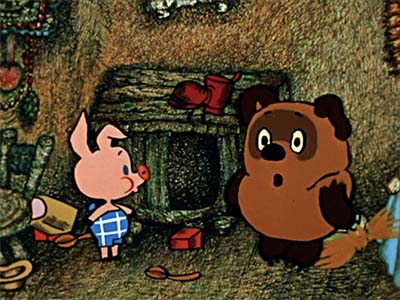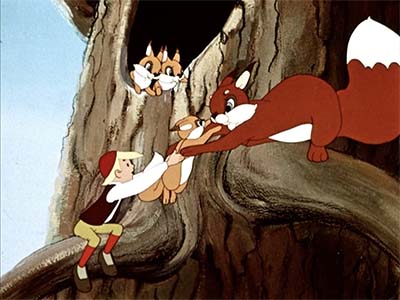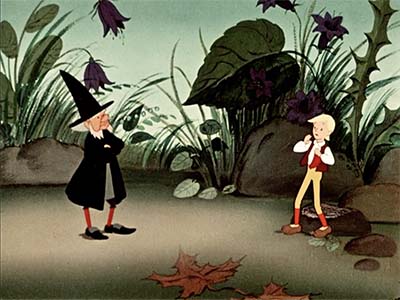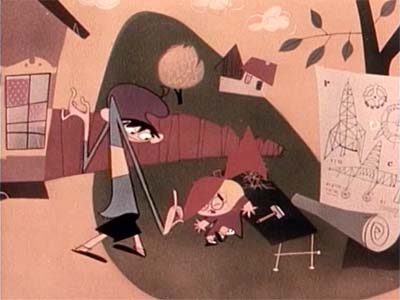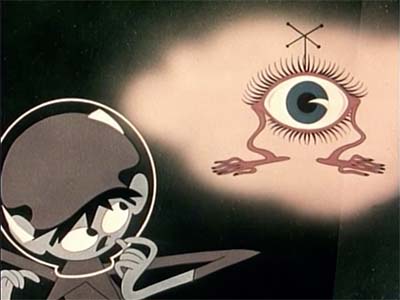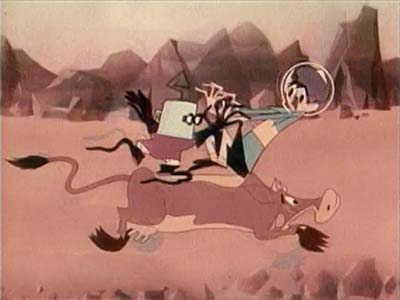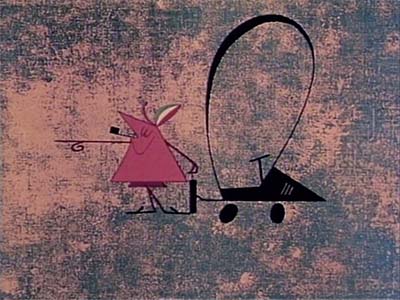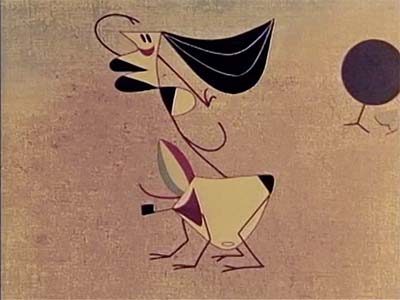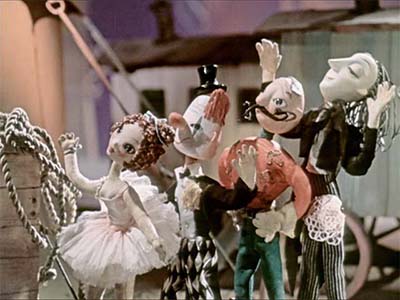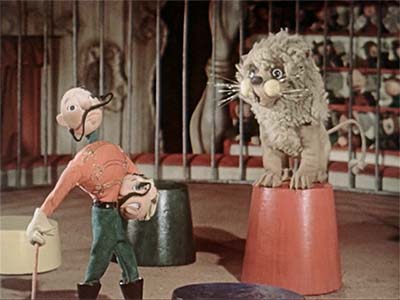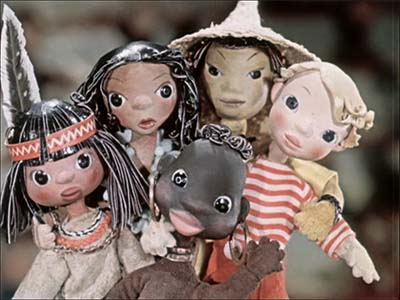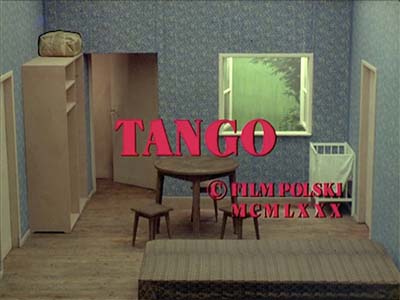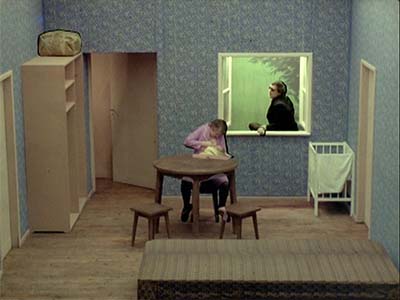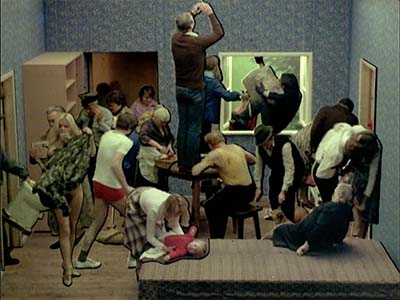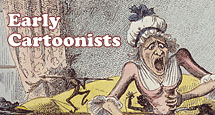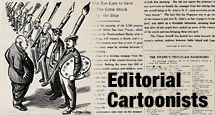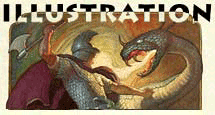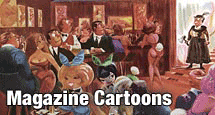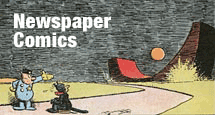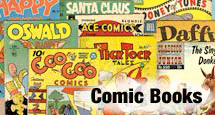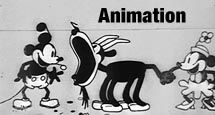People who aren’t members of Animation Resources don’t understand how comprehensive our Reference Packs are. Over the next couple of weeks, we will be posting what each section of our current RefPack looks like. If you are a member of Animation Resources, click on this post to go to the Members Only page. If you aren’t a member yet, today is the perfect time to join! Our current Reference Pack is one of our best yet, and General and Student Members get access to a special Bonus Archive with even more material from past Reference Packs.
What are you waiting for?![]()
JOIN TODAY!
https://animationresources.org/membership/levels/

The world of animation is much bigger than it might appear to us at first glance. We are all familiar with the films we grew up with, but Hollywood wasn’t the only place that produced great cartoons… Poland, Japan, Russia, China and Europe all have their own traditions and a rich history of animated film making. Animation Resources’ archive contains many foreign films that are rarely seen in the United States. We feature a sampling of interesting animation from around the world in each Reference Pack.
Winnie The Pooh episode 03
![]()
Fyodor Khitruk / Soyuzmultfilm, Russia / 1972
Download this article
This time, Animation Resources is concluding Fyodor Khitruk’s series of films based on “Winnie The Pooh” with the third and final episode, Winnie The Pooh And A Busy Day. You’ll find that this series is quite different than the Disney version. Khitruk omits Christopher Robin and focuses solely on Winnie the Pooh and his friends. He said that he made this choice because he didn’t want the characters to be subordinate to a human character; and it’s clear that Khitruk’s choice was a good one. On a visit to California, Khitruk paid a visit to the Disney Studios where he met Woolie Reitherman, the director who had won an Oscar for Disney’s version of “Winnie The Pooh”. Reitherman admitted to Khitruk that he liked Khitruk’s films better than his own.
The story of the last short film in the series follows the same plot as the third of Disney’s Winnie The Pooh films… A Day For Eeyore. This episode is longer than the others, and it includes much more dialogue, so it may require some patience for non-Russian speakers.
Eeyore stands by a pond looking at his reflection. He is sad because it is his birthday and no one remembered. To make matters worse, he has lost his tail. Winnie the Pooh comes along and visits with him and finds out it is Eeyore’s birthday. He goes to Piglet and they decide to give him presents to cheer him up. Pooh runs to his house and gets a pot of honey, and Piglet goes to his house and fetches a balloon. Unfortunately, Pooh is hungry and he ends up eating all the honey in the honey pot. He goes to Owl’s house to ask what he should do, and he finds Eeyore’s tail being used as a rope for Owl’s doorbell. Owl demonstrates the doorbell, breaking off the tail. It turns out that Owl is allergic to it. Meanwhile, Piglet is running with the balloon and trips, popping the balloon. They all go to give Eeyore their gifts— an empty pot, a broken balloon, and a disconnected doorbell pull. Eeyore is pleased with the little bit of rubber and the pot to put it in, and ends up getting his tail back.
Although the pacing of the film is leisurely, the timing is still sharp. Khitruk focuses on “micro gags” and quick changes of expression that use personality to keep the audience engaged with the characters. The style is charming and disarmingly simple, much more in keeping with the spirit of the original book than Disney’s version.
MP4 Video File / SD / 19:25 / 334 MB Download
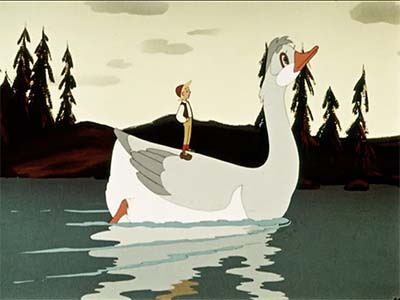
The Enchanted Boy
![]()
Vladimir Polkovnikov & Aleksandra Snezhko-Blotskaya / Soyuzmultfilm, Russia / 1955
In the years immediately following the end of WWII, Russian animation progressed rapidly. By the mid 1950s, the quality level had caught up with the peak standards in the West. One of the most successful films produced by Soyuzmultfilm during this period was “The Enchanted Boy”. This featurette is rarely seen in the West and has never been translated into English.
The story is a simplified version of a fairy tale by Selma Lagerlof… A village boy named Nils, takes pleasure in cruelly teasing animals. He meets a tomte, a magical character similar to a leprechaun, and ends up insulting him. The tomte punishes him by enchanting him, shrinking the boy down to his size and giving him the power to understand the speech of the animals he abused. The tomte explains to Nils that he won’t return the naughty boy to his normal size until he performs three brave deeds. Then the tomte disappears, leaving the boy to fend for himself and learn his lessons. Nils befriends a goose named Martin to whom he had been cruel as a full size boy. He flies across Lapland on Martin’s back, visiting many places and performing the three brave deeds. All the time he’s searching for the tomte, so he can be changed back into a full size boy.
Hollywood animation had penetrated into Russia in the pre-war years and animators there took notice of the styles and techniques from America. The earliest post-war films produced in Russia leaned on rotoscoping, but it didn’t take long for them to move past mechanics and begin animating without tracing. The Enchanted Boy has realistic character designs, but they are streamlined and simplified. And although filmed reference appears to be used, especially in the personality acting and gestures of the tomte, it is skillfully adapted, resulting in sophisticated animation that isn’t at all stiff like rotoscoping often is. This film has beautiful color and backgrounds as well— well worth studying. Soyuzmultfilm in this era was producing films that were second to none.
MP4 Video File / SD / 42:53 / 806 MB Download
JOIN TODAY To Access Members Only Content
Cow On The Moon
![]()
Dusan Vukotik / Zagreb Films, Croatia / 1959
We’re happy to introduce films from the acclaimed Zagreb Films studio to our Reference Packs. In the early 1950s, an American film called The Four Poster was screened in Yugoslavia (now known as Croatia). It wasn’t a particularly successful film, but it included animated sequences by John Hubley at UPA. (See download link below.) Animator Dusan Vukotik had read an article on UPA in Graphis magazine, and along with Vatroslav Mimica, he decided to create animated films in that style. With such a small sample of UPA’s work to inspire them, they interpolated their own theories of stylization and motion, creating an unique style that came to be known as the “Zagreb School”. The antithesis of Disney style, Zagreb films were adult, stylized, cynical and ironic, focusing on how “the little guy” is manipulated by forces beyond his control.
One of the earliest of the Zagreb films was “Cow On The Moon”. A small girl is studying to be a scientist, experimenting with a model rocket. A clumsy boy comes along and bullies her, smashing her model with his soccer ball. She plots revenge, building a full scale rocket ship out of junk and tricking the boy into getting inside. She transports the rocket with the boy inside to a field, making him think he has travelled to the moon. When he emerges from the spaceship he finds the girl dressed as an alien with black rubber gloves and a “moon creature”— a cow grazing in the field. After some slapstick, the ruse is revealed and the bully is chastised.
The posing and movement in this film are angular and incredibly expressive. No other film up to this time moved like this. In particular, pay attention to the scene of the boy bouncing his soccer ball. There are more fun poses there than in a dozen ordinary films. Although the film may look on the surface like the work of UPA, it doesn’t move anything like most UPA films, with the possible exception of those animated by Rod Scribner.
This film is almost unknown in the United States, and that is incredibly unfair. Animation Resources was able to find a reasonably good copy, but it was converted from one video standard to another incorrectly, resulting in burned in interlacing that we are unable to remove. If you know of a better source for Zagreb films, please let us know.
MP4 Video File / SD / 14:32 / 353 MB Download
MP4 Video File / SD / 10:05 / 185 MB Download
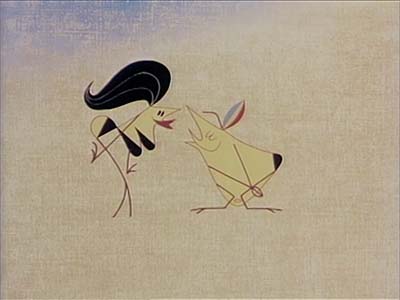
Surogat (aka: Ersatz)
![]()
Dusan Vukotik / Zagreb Films, Croatia / 1961
A few years later, Vukotik took the animation style of “Cow On The Moon” several steps further in a film called “Surogat” (aka: “Ersatz”, “The Substitute”).
Emulating the whimsical style of paintings by Joan Miro, the film stars a main character who is shaped like a triangle who spends a day at the beach, where everything he runs across is inflatable like a pool toy. I won’t summarize the film, it speaks for itself, but it’s worth mentioning how Vukotik sets up and pays off his gags. Despite the heavy stylization, it all plays crystal clear with snappy timing. It’s a model of how limited animation should be done.
“Surogat” was a sensation worldwide, winning at film festivals in Bergamo Italy, Belgrade Yugoslavia and San Francisco, among many others. In 1962, it won an Oscar for Best Animated Short Film, the first film produced outside of the United States to be awarded that honor. Like “Cow On The Moon”, “Surogat” has been improperly converted from SECAM to NTSC, causing interlacing shadows that cannot be removed. But it is too important a film not to share.
MP4 Video File / SD / 09:21 / 127 MB Download
JOIN TODAY To Access Members Only Content
Circus
![]()
Wlodzimierz Haupe / Film Polski, Poland / 1954
Now we shift from Croatia to Poland. Poland was the birthplace of puppet animation before World War I with the films of Wladyslaw Starewicz. But little of that tradition remained after the devastation of World War II. In the late 1940s, Poland built back its culture of animation from scratch, and by the mid-1950s Polish puppet animation had achieved a high level of quality. “Circus” by Wlodzimierz Haupe was one of the first Polish puppet films from this era to receive worldwide acclaim.
The film is set in a circus, with a lion tamer and an equestrienne. A group of children from different lands perform a tumbling act, and jump on a teeterboard. When the African child is on the board, he is propelled through the roof of the circus tent, all the way to the moon. When he doesn’t come down again, the other children build a rocket ship to travel to the moon to rescue him.
The standout aspect of this film is its art direction by Halina Bielinska. The sets are beautifully designed, and the puppets are charming. The articulation of the puppets is pretty basic— there are no replacement faces like in a George Pal film— but they are manipulated well to put across their attitudes with movement alone. Wonderful work!
MP4 Video File / SD / 14:09 / 273 MB Download
Tango
![]()
Zbigniew_Rybczynski / Ma?ych Form Filmowych Se-ma-for, Poland / 1980
When we think about animation techniques, we think of hand drawn animation, computer generated imagery, and puppet animation, but all of these are basically the same thing— animation. What is the element that defines what animation is? What do all these techniques share? Artists who think outside the box, like Zbigniew Rybczynski are the ones who shine a light on the magical element that makes animation animation… time.
When we break down movement into individual frames, it allows us to sculpt a hyper-reality, one where anything is possible. We don’t normally think of optical printing as an animation technique, but in his award winning film “Tango”, Rybczinski takes time and loops it back upon itself, creating an amazing collage of looping actions that reveal themselves to be a magical Chinese puzzle box of movement.
I can’t even begin to conceive of the planning that this film required. But when I watch it, all of that hard work disappears, and I am left marveling at a fantastic magic trick. That is the mark of truly great animation. Rybczinski, like Norman McLaren, Len Lye and Alexandre Alexeieff strips animation back to its essence and reveals what makes it special. “Tango” won a well-deserved Oscar at the 1981 Academy Awards.
MP4 Video File / SD / 07:53 / 106 MB Download
More members mean we can bring you more special downloads.
JOIN TODAY To Access Members Only Content
Animation Resources is one of the best kept secrets in the world of cartooning. Every month, we sponsor a program of interest to artists, and every other month, we share a book and up to an hour of rare animation with our members. If you are a creative person interested in the fields of animation, cartooning or illustration, you should be a member of Animation Resources!
It’s easy to join Animation Resources. Just click on this link and you can sign up right now online…
JOIN TODAY!
https://animationresources.org/membership/levels/
![]()
![]() Animation Resources depends on your contributions to support its projects. Even if you can’t afford to join our group right now, please click the button below to donate whatever you can afford using PayPal.
Animation Resources depends on your contributions to support its projects. Even if you can’t afford to join our group right now, please click the button below to donate whatever you can afford using PayPal.





